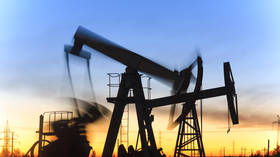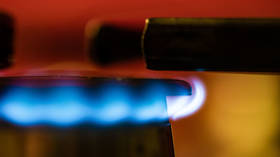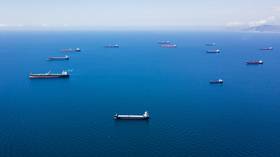EU explains why it keeps buying Russian oil

Europe cannot place an immediate embargo on Russian oil, European Commission President Ursula Von der Leyen has said, as it would allow Moscow to sell its fuel elsewhere and possibly earn more money to fund its military offensive in Ukraine.
“If we would completely, immediately, as of today cut off the [Russian] oil, [Russian President Vladimir] Putin might be able to take the oil that he does not sell to the EU to the world market, where the prices will increase, and sell it for more – and that would fill his war chests,” the EU leader said in an interview with MSNBC earlier this week.
The EU, along with the US and several other Western nations, have placed unprecedented sanctions on Russia over the past three months in response to its military operation in Ukraine, which the West views as an act of unprovoked aggression.
The EU has introduced five packages of sanctions so far, and is working on a sixth one which is to include the details of a ban on Russian fuel, notably oil. According to Von der Leyen, “sanctions are hitting the Russian economy hard,” but a complete embargo would cause severe damage to the European economy.
“We have to find the right balance between not hurting our economy too much because this is the strongest leverage we have against this Russian aggression, Putin’s aggression… So we have to be very strategic in the way we approach that topic and therefore it is also so important that we convene the rest of the world to really make sure that we deplete his war chests,” she said.
Nevertheless, Von der Leyen insisted that overcoming dependence on Russian oil and gas is one of the EU’s major goals in the long run, especially considering Europe’s green transition goals. Earlier this month, Brussels introduced a new package of measures that combines these two aims, dubbed REPowerEU. It envisages diversifying from Russian natural gas to other suppliers, for instance, buying liquefied natural gas (LNG) from the US, while promoting energy saving and investment in renewables such as wind, solar, hydropower and hydrogen.
“Over time what we do is get rid of the overall dependency of the Russian fossil fuels, all three of them, and never to go back again… If there’s anything Putin has achieved it is that he lost his best client and Europe will never come back, and he pushed us – and that’s good – into the direction of renewable energy,” von der Leyen stated.
For more stories on economy & finance visit RT's business section














